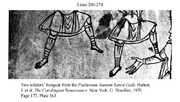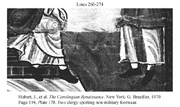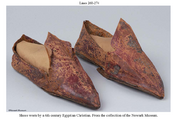Difference between revisions of "Test2"
| (3 intermediate revisions by the same user not shown) | |||
| Line 1: | Line 1: | ||
==Introduction: the Huns (1–12)== | ==Introduction: the Huns (1–12)== | ||
{| | {| | ||
| − | |||
|- | |- | ||
|[[tres#tertia|Tertia]] [[pars]] [[orbis]], [[frater#fratres|fratres]], [[Europa]] [[voco|vocatur]], | |[[tres#tertia|Tertia]] [[pars]] [[orbis]], [[frater#fratres|fratres]], [[Europa]] [[voco|vocatur]], | ||
| | | | ||
| − | |||
|{{Commentary|''Tertia pars orbis'': as opposed to Africa and Asia, a division found as early as Herodotus (2.16). | |{{Commentary|''Tertia pars orbis'': as opposed to Africa and Asia, a division found as early as Herodotus (2.16). | ||
''Fratres'': suggests that the poem could have been read in a monastic context. | ''Fratres'': suggests that the poem could have been read in a monastic context. | ||
| Line 18: | Line 16: | ||
File:Waltharius-Lines-260-274-3.png | File:Waltharius-Lines-260-274-3.png | ||
</gallery>}} | </gallery>}} | ||
| + | |{{Meter|scansion=DSSSDS}} | ||
|{{Comment|Test a student comment. -RRO}} | |{{Comment|Test a student comment. -RRO}} | ||
|- | |- | ||
| − | |<span class="word"> | + | |<span class="word">Moribus<span class="wordtext">ablative, feminine plural<br />Dictionary form: ''mos'' (noun)<br />Root: ''mos''<br />[http://www.perseus.tufts.edu/hopper/morph?l=moribus&la=la Perseus]</span></span> <span class="word">ac<span class="wordtext">Dictionary form: ''ac'' (conjunction)<br />Root: ''ac''<br />[http://www.perseus.tufts.edu/hopper/morph?l=ac&la=la Perseus]</span></span> [[linguis]] [[varias]] [[et]] [[nomine]] [[gentes]] |
| | | | ||
|{{Meter|scansion=DSDSDS}} | |{{Meter|scansion=DSDSDS}} | ||
Latest revision as of 15:36, 26 August 2009
Introduction: the Huns (1–12)
| Tertia pars orbis, fratres, Europa vocatur, | Tertia pars orbis: as opposed to Africa and Asia, a division found as early as Herodotus (2.16).
Fratres: suggests that the poem could have been read in a monastic context. |
Lucan, De Bello Civili 9.411-412.: Tertia pars rerum Libye, si credere famae/ Cuncta velis; at, si ventos caelumque sequaris,/ Pars erit Europae.
‘Libya is the third continent of the world, if one is willing in all things to trust report; but, if you judge by the winds and the sky, you will find it to be part of Europe.’ |
|
DSSSDS | Test a student comment. -RRO | |
| Moribusablative, feminine plural Dictionary form: mos (noun) Root: mos Perseus acDictionary form: ac (conjunction) Root: ac Perseus linguis varias et nomine gentes |
DSDSDS | Aeneid 8.722-723.: gentes,/ quam variae linguis, habitu tam vestis et armis.
‘Peoples as diverse in fashion of dress and arms as in tongues.’ Prudentius, Contra Orationem Symmachi 2.586-587.: discordes linguis populos et dissona cultu/ regna volens sociare Deus. . . ‘God, wishing to bring into partnership peoples of different speech and realms of discordant manners. . .’ |
||||
| Distinguens cultu tum religione sequestrans. | SSSDDS | Sequestrans: “separating” | ||||
| Inter quas gens Pannoniae residere probatur, | SSDDDS | Pannonia: Roman province in the north-west Balkans, according to the poet the homeland of the “Huns” (Hunos, line 5), a nomadic tribe that invaded Europe from the east, beginning around 370 A.D. | ||||
| Quam tamen et Hunos plerumque vocare solemus. | 5 | DSSDDS | ||||
| Hic populus fortis virtute vigebat et armis, | DSSDDS | |||||
| Non circumpositas solum domitans regiones, | SDSDDS | Liber I Macchabeorum 1.1-2.: Et factum est postquam percussit Alexander Philippi Macedo qui primus regnavit in Graecia egressus de terra Cetthim Darium regem Persarum et Medorum constituit proelia multa et omnium obtinuit munitiones et interfecit reges terrae et pertransiit usque ad fines terrae.
‘Now it came to pass, after that Alexander the son of Philip the Macedonian, who first reigned in Greece, coming out of the land of Cethim, had overthrown Darius king of the Persians and Medes: he fought many battles, and took the strong holds of all, and slew the kings of the earth: and he went through even to the ends of the earth.’ |
||||
| Litoris oceani sed pertransiverat oras, | DDSSDS | Aeneid 3.396: has autem terras Italique hanc litoris oram. . .
‘But these lands, and this nearest border of the Italian shore. . .’ Virgil, Georgics 2.44: ades et primi lege litoris oram. ‘Draw nigh, and skirt the near shoreline.’ |
||||
| Foedera supplicibus donans sternensque rebelles. | DDSSDS | Aeneid 6.851-852.: tu regere imperio populos, Romane, memento/ (hae tibi erunt artes), pacique imponere morem,/ parcere subiectis et debellare superbos.
‘You, Roman, be sure to rule the world (be these your arts), to crown peace with justice, to spare the vanquished and to crush the proud.’ |
||||
| Ultra millenos fertur dominarier annos. | 10 | SSSDDS |
| < previous |
|
next > | English |



